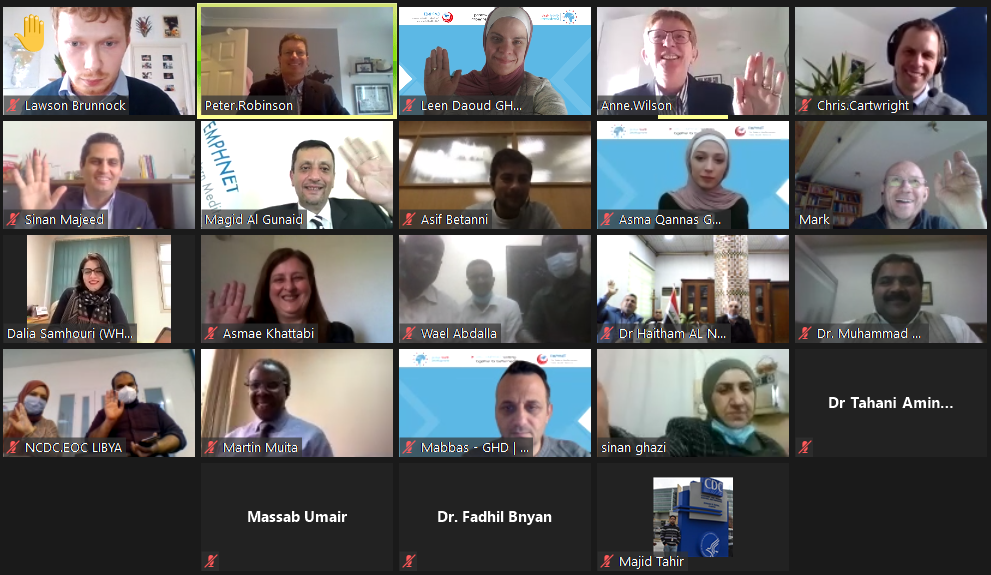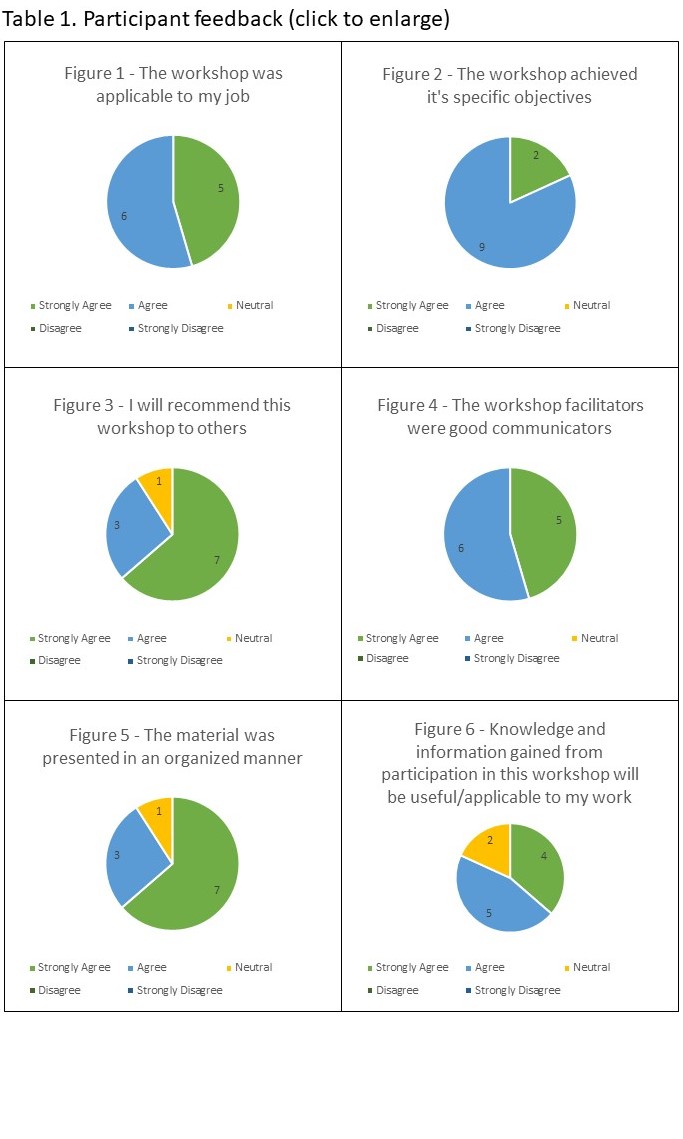
Sharing how responses to COVID-19 demonstrate the value of Multisector Coordination
KEY ACHIEVEMENTS | BACKGROUND | PRACTICE DEVELOPMENT | RESULTS | KEY LEARNINGS
Key achievements
|
Background
The IHR Project seeks to deliver its mandate of building technical capability, developing sustainable public health systems and strengthening leadership at both national and regional levels.
Effective multisector coordination provides a foundation for IHR strengthening across the whole system. Developing multisector coordination capacities and capabilities has been a key focus of PHE’s work in Pakistan and an approach which demonstrates the benefits of different partners coming together.
PHE’s initial aims of working at a regional level in the Eastern Mediterranean Region (EMR) included:
- Sharing the Pakistan experience of developing multisectoral coordination capacities and capabilities
- Exploring and piloting how working with a regional delivery partner could help the IHR project deliver its mandate at a regional/sub-regional level
- Developing further understanding of the EMR
- Identifying future opportunities for collaboration.
- Raising the profile of PHE in the region
Global Health Development|Eastern Mediterranean Public Health Network (GHD|EMPHNET) is a non-governmental organisation based in Jordan which supports countries in the EMR to strengthen their health systems to respond to public health challenges and threats. The relationship between PHE and GHD|EMPHNET has been developing over the past few years with opportunities for potential collaboration being scoped, supported by a Memorandum of Understanding (October 2019).
Previous discussions with GHD|EMPHNET, colleagues at WHO Eastern Mediterranean Regional Office (EMRO) and countries in EMR identified multisector coordination as a key area where IHR strengthening support could be provided. Whilst a proliferation of guidance and toolkits exist describing what to develop, insight from GHD|EMPHNET and countries identified how to practically develop multisector coordination as a key challenge. Multisector coordination was therefore identified as an area where potential activities could be explored and developed to support public health in the region. This included the IHR Project experiences from Pakistan while recognising that these could not simply be replicated by others.
Practice development
Our original intent had been to create and jointly host a series of face to face workshops, for a group of selected countries, to develop and strengthen a particular aspect of their multisector coordination systems, complemented by ongoing coaching and mentoring support provided in country by GHD|EMPHNET.
These ambitions were soon overtaken by the emergence and development of the COVID-19 pandemic. Whilst support needs remained it became clear that:
- Expecting officials to participate in this activity as originally intended would be a burden on very stretched public health systems
- Travel restrictions would be a challenge in hosting face to face events
The activity ambition was reoriented to that which could feasibly and usefully be delivered under the circumstances whilst also laying the foundations for future collaborations. Consequently, we developed and delivered a virtual workshop which supported understanding of how multisector coordination had been operationalised and was positively contributing to the response to COVID-19 pandemic. A series of case studies (EMRO, Morocco, Pakistan and UK) were curated for the event, complimented by group discussions.
A core joint PHE GHD|EMPHNET team held 11 planning meetings, joined by strategic leads for half of the meetings. This group split worked well and provided a forum for the exchange of knowledge and skills from different geographical and professional backgrounds. It maximised the knowledge and mature working relationships in EMR that GHD|EMPHNET brings as a partner. Whilst PHE is used to working in countries with different cultures, language and systems, there is a sense that working in the EMR poses additional challenges concerning location, political stability, security and the limited maturity of working relationships between PHE and many EMR countries.
Whilst this was a focussed (1.5 hours) virtual event, sizeable delegations from Iraq, Libya, Pakistan and Sudan participated including very senior leaders. Delivering virtual events is inexpensive and was acceptable to participants suggesting this is an approach which under appropriate circumstances can be used in future to overcome some of the barriers to working in EMR.
Results
Initially sixteen participant places were allocated, the event was however oversubscribed with a total of at least 19 participants joining the workshop. Formal feedback was provided by 11 participants (Table 1) in addition to formal feedback from observers and facilitators. The feedback indicates a high level of satisfaction with event, meeting needs and expectations whilst noting that this represents a broad spectrum of individuals from different countries, experiences and professional backgrounds.
Participants engaged in active discussions on multisector coordination with Arabic speaking facilitators from GHD|EMPHNET enabling some countries to communicate in their main language. The importance of multisector coordination as a foundation was specifically identified by participants as an area of learning with participants expressing a desire for further exploration of the topic, technicalities and mechanisms of multisector coordination.
There was a strong appetite for future events and activities with COVID-19 presenting a potential opportunity to catalyse the development and strengthening multisector coordination. Of note for future was:
- Workshop discussions were based primarily on the health sector perspective suggesting that there would be benefits in widening the focus of activities to more sectors to support a fuller understanding beyond health.
- Country feedback indicated that some already have well established and developed multisector coordination systems, highlighting opportunities of facilitating sharing of in-region experience, knowledge and understanding to support regional neighbours.
The workshop enabled brief introductions to multisector coordination in participating countries. It was generally agreed that a greater understanding of countries multisectoral experiences is needed to help appropriately shape and develop further offers of support.
Key learning
The activity has enabled PHE to achieve its five aims of:
- Sharing the Pakistan experience of developing multisectoral coordination capacities and capabilities
- Exploring and piloting how working with a regional delivery partner could help the IHR Project deliver its mandate at a regional/sub-regional level
- Developing further understanding of the Eastern Mediterranean Region
- Identifying future opportunities for collaboration
- Raising the profile of PHE in the region.
The partnership approach to planning and delivering the event was felt by both GHD|EMPHNET and PHE to have been successful and worked well. The two teams had not worked together prior to this event and during this good working relationships developed in-spite of the challenging context of remote working. There was a good mix of skills within the project team, both strategic ability, public health knowledge and pragmatic operational skills.
From a PHE perspective, we observed that reach, senior level connectivity and knowledge of target countries exists within GHD|EMPHNET. There appeared to be credibility and contact evident both when a further case study country was required and by the numbers and seniority of workshop participants. It demonstrated the value of the partnership and provides evidence of how the mature working relationships that GHD|EMPHNET has in the region compliments PHEs subject matter expertise. We were pleased to be able to secure the participation of EMRO colleagues in the event also and ensured they were appraised of and had the opportunity to provide contributions prior to the delivery of the event.
Having an experienced facilitator to lead the event overall was identified as an important component of the events success. Shifting the balance of the agenda to greater discussion and less presentations would be preferable for future events. The workshop, as a first event introducing the partnership and opening multisector coordination as a topic area of discussion achieved the right balance with the trade-offs that had to be made.

Our understanding of the region was enhanced through the country discussions. We heard what appeared to be several areas of good practice and lots of useful elements to explore further. An example of this includes how one country has been able to progress multisectoral coordination despite a challenging security environment and therefore the opportunity for sharing this learning with other countries.
There were several benefits to the IHR Project including illustrating the value of working with new countries and therefore increasing the profile of PHE. The event increased understanding and started the development of relationships as well as demonstrating a different approach that PHE brings to strengthening and sharing learning.
GHD|EMPHNET and PHE are now exploring the potential for future activities focussed on multisector coordination and the ongoing development of the working partnership to support strengthening of IHR compliance in EMR.
KEY ACHIEVEMENTS | BACKGROUND | PRACTICE DEVELOPMENT | RESULTS | KEY LEARNINGS
